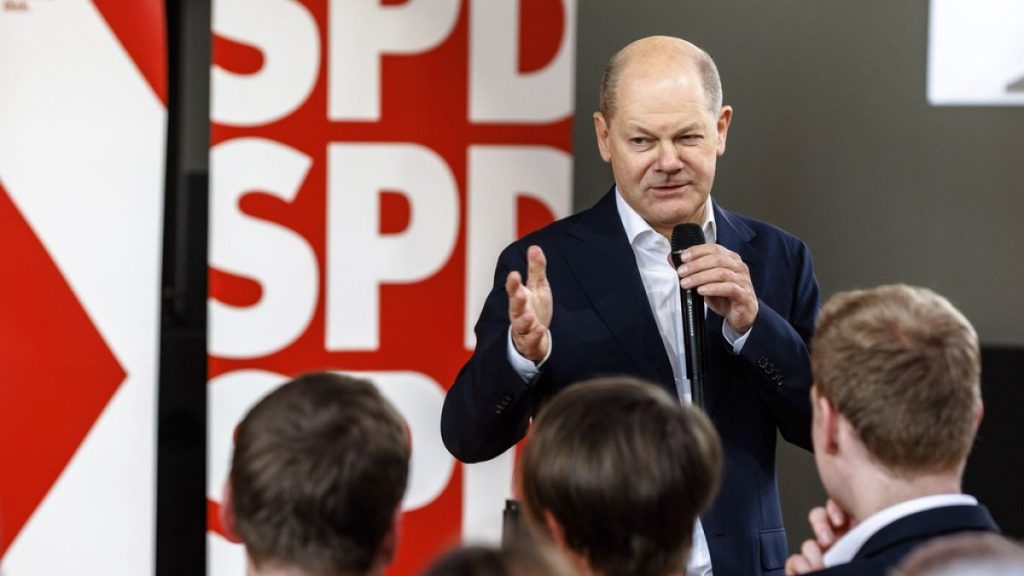The Social Democratic Party (SPD) in Germany launched its European election campaign in Hamburg with German Chancellor Olaf Scholz and lead candidate Katarina Barley in attendance. Scholz focused on the theme of hope and reassured voters that Germany would continue to support Ukraine without getting involved in a direct confrontation with Russia. The SPD’s campaign posters prominently feature the message of peace, highlighting their commitment to maintaining peace and security in Europe. The far-right Alternative for Germany (AfD) party also kicked off its campaign, with top candidate Maximilian Krah facing controversy after an assistant was arrested on suspicion of spying for China. The AfD has seen fluctuations in its poll ratings following backlash over a plan to deport millions of people of non-German ancestry, sparking mass protests against the rise of the far-right in Germany.
The European Parliament, as the only publicly elected body in the European Union, plays a crucial role in shaping EU policies and legislation. Established after World War II to promote peace, the EU now has 450 million people and the world’s second-largest economy. The upcoming European elections are expected to be heavily influenced by the discourse and actions of far-right parties across the continent. In Germany, the SPD and the AfD are key players in the election campaign, with contrasting messages and approaches to addressing the current political and social issues facing the country. The SPD’s emphasis on peace and security contrasts with the AfD’s controversial positions, which have sparked protests and concerns about the rise of the far-right in Germany.
Chancellor Olaf Scholz’s leadership of the SPD reflects the party’s commitment to maintaining a balanced approach in foreign policy, particularly in relation to the conflict between Russia and Ukraine. By emphasizing the importance of prudence and avoiding direct confrontation, Scholz aims to alleviate fears among German voters about being drawn into conflicts involving NATO and Russia. The SPD’s campaign posters featuring Scholz and Barley highlight the party’s focus on promoting peace and stability in Europe, with a clear message of unity and cooperation within the EU. In contrast, the AfD’s campaign has faced setbacks due to controversies and internal conflicts, impacting its polling numbers and overall position within the German political landscape.
The European elections present an opportunity for voters in Germany and across the EU to shape the future of the continent and influence key policy decisions at the European level. With the rise of far-right parties and populist movements, there is growing concern about the potential impact of their rhetoric and policies on the stability and unity of the European Union. The contrasting messages of parties like the SPD and the AfD reflect the broader political divisions and debates within Germany, as well as the broader challenges facing the EU as a whole. As the campaign progresses, voters will have the opportunity to evaluate the different platforms and positions of the parties, making their decision based on issues such as peace, security, and European cooperation.
The success of the SPD’s campaign in Germany will depend on its ability to effectively communicate its message of hope and peace to voters, particularly in the context of ongoing geopolitical tensions and security concerns in Europe. By highlighting its commitment to maintaining a balanced and prudent foreign policy, the SPD aims to reassure voters about Germany’s role in promoting peace and stability within the EU. In contrast, the AfD’s campaign faces challenges due to controversies and internal conflicts, which have impacted its polling numbers and overall credibility among German voters. The upcoming European elections will be a crucial test for both parties, as they seek to gain support and influence the future direction of the European Union.
Overall, the European elections in Germany are shaping up to be a critical juncture in the country’s political landscape, with the SPD and the AfD vying for voter support and influence. While the SPD emphasizes peace and security in its campaign, the AfD’s controversial positions and internal issues have led to fluctuations in its popularity and credibility. As the campaign progresses, voters will have the opportunity to evaluate the different platforms and positions of the parties, making a decision based on issues such as foreign policy, security, and European cooperation. The outcome of the elections will have far-reaching implications for Germany and the EU as a whole, shaping the future direction of the continent and its role in promoting peace, stability, and unity.












